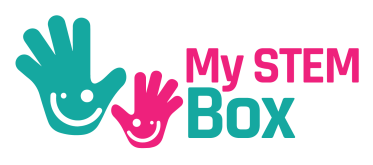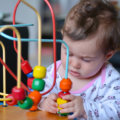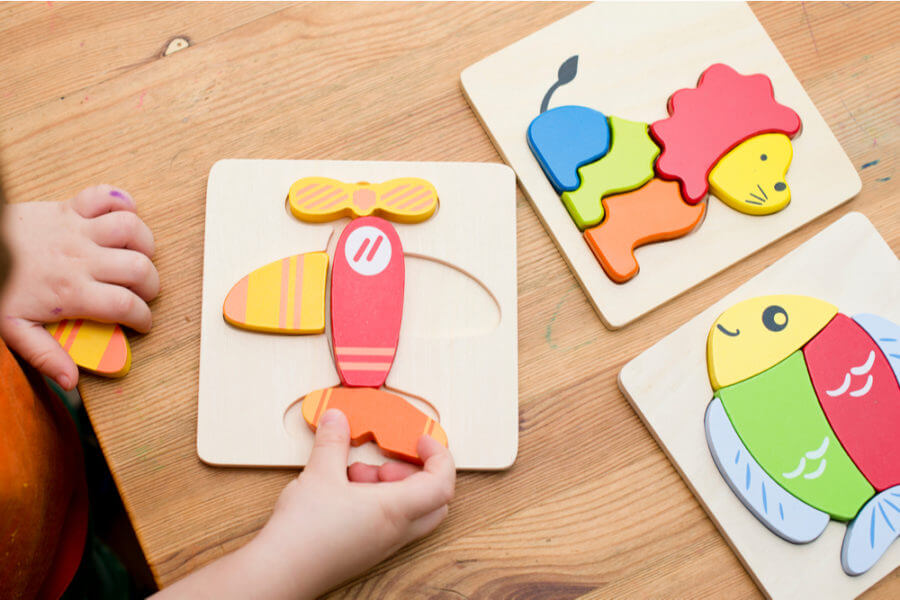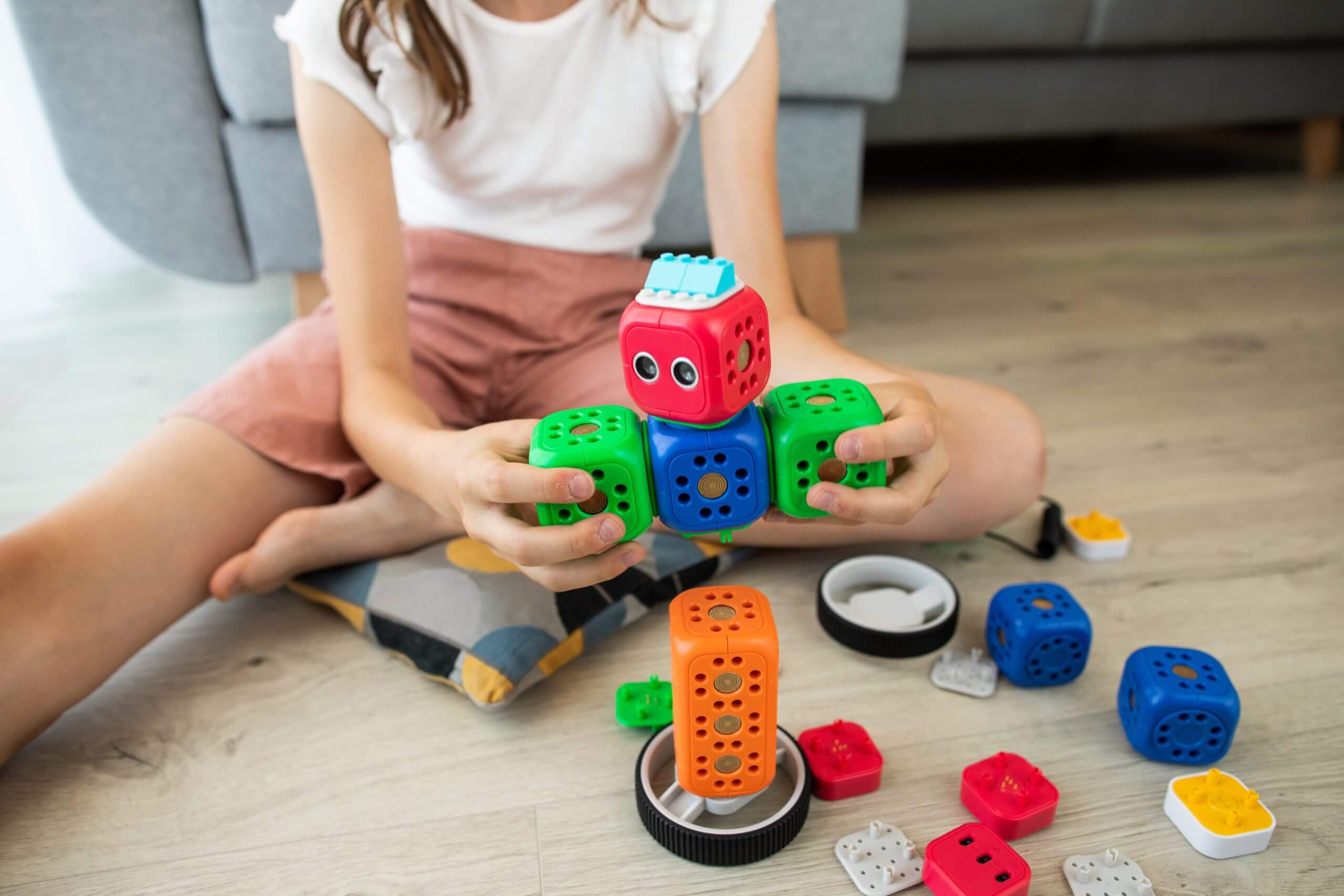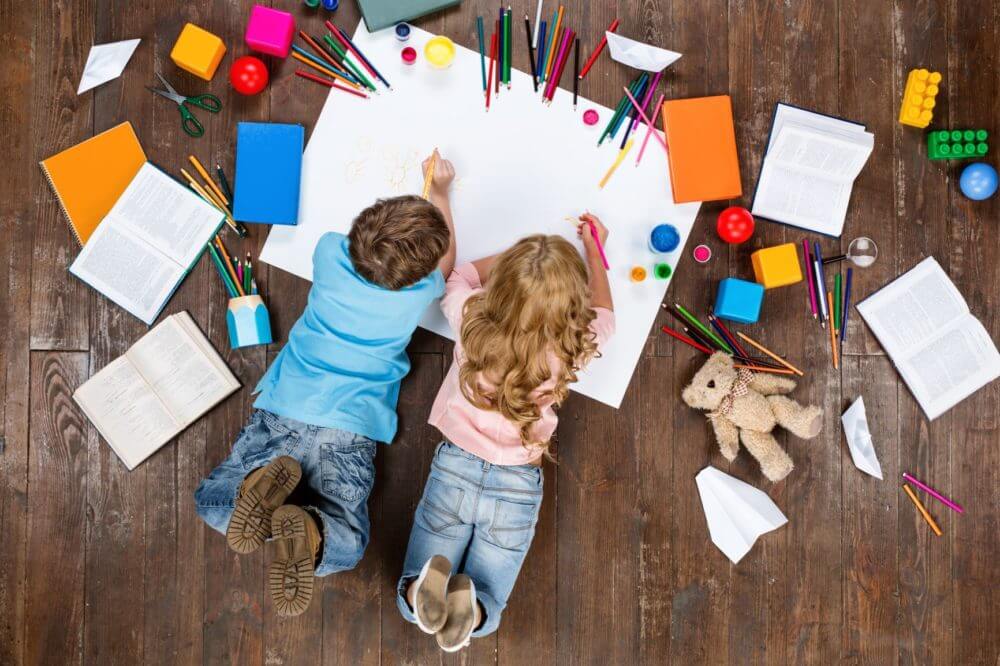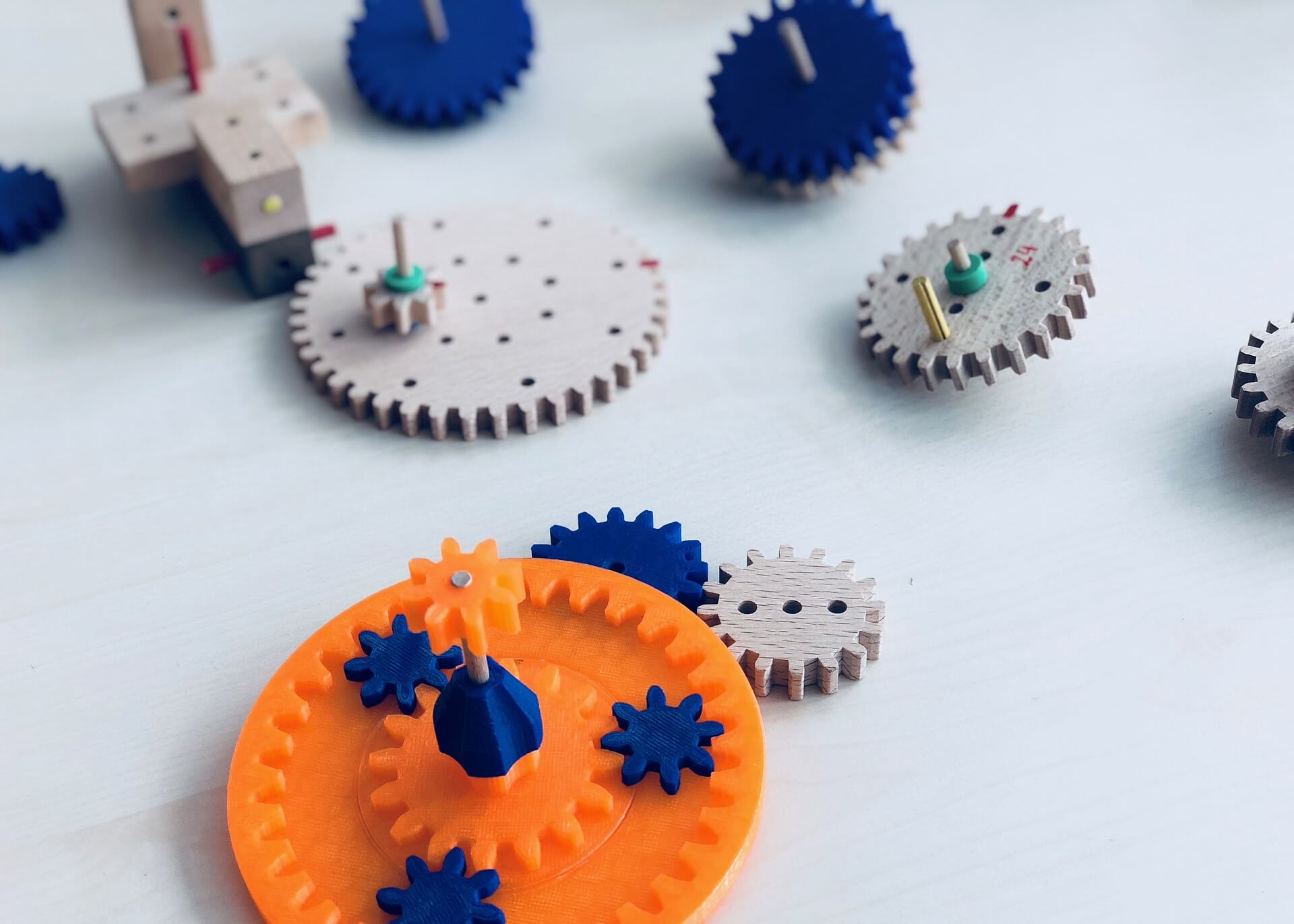During the first three years of your child’s life is when the brain develops the most.
Contents
This is a really important time to build the foundation of skills that they will use for the rest of their lives. While children may not necessarily remember the experience in years to come, the key skills and knowledge will stay with them forever.
You can help your toddler to exercise their brain by engaging with fun activities and games that will help them to learn a variety of new skills and develop their existing ones.
Anything that you can do with them to get their minds working is going to be beneficial for their development. It can be difficult to think of engaging activities for cognitive development that will keep their attention.
To help you do this, we have created a list of the best brain-boosting activities for toddlers for you to choose from.
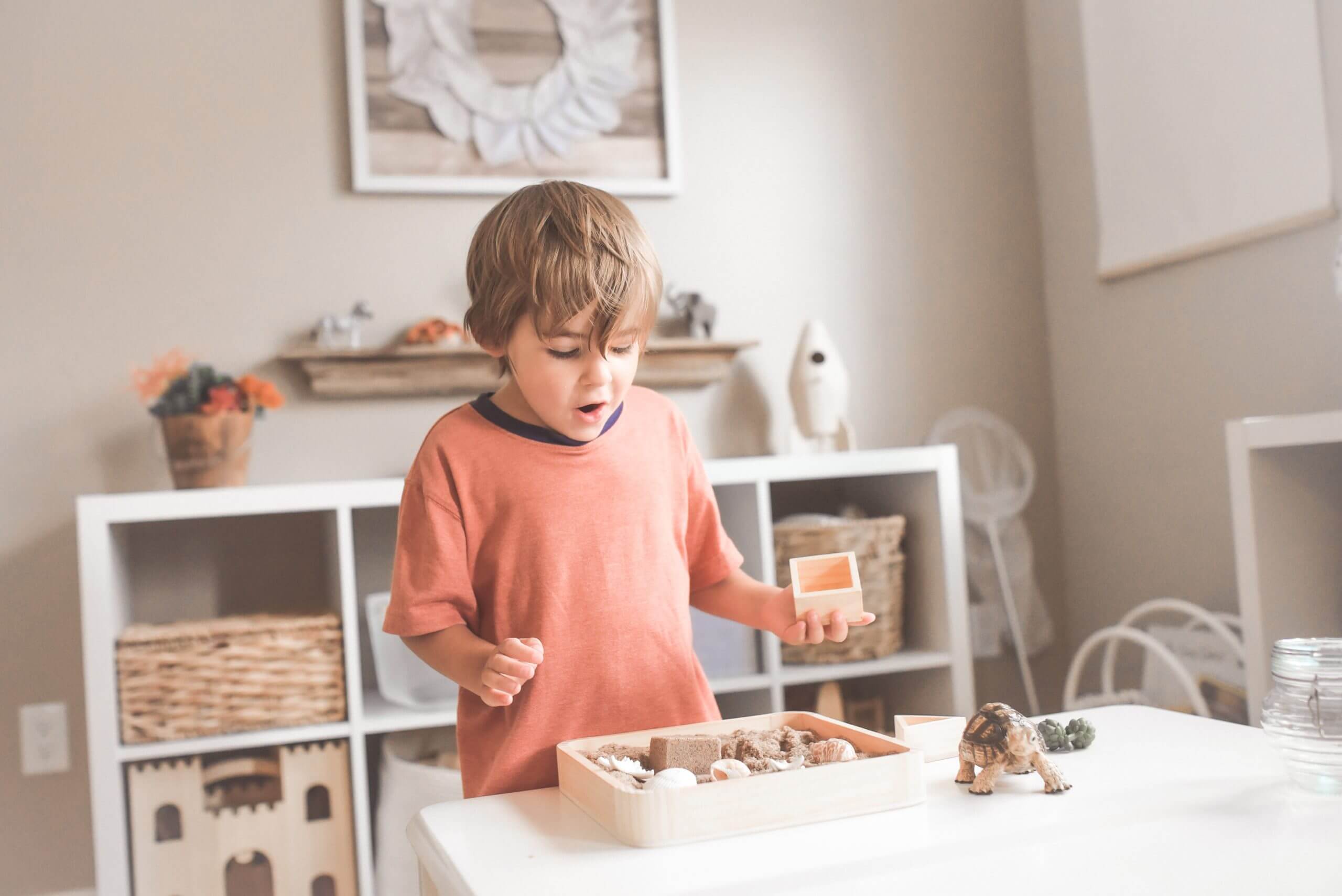
Tips for Successful Activity Sessions
With their wandering minds, it can be difficult to keep your toddler engaged in an activity for long. However, there are some things that you can do to help keep them interested.
Try letting them take the lead. Maybe set up some games and see what they are most drawn to. Children have wild imaginations that can often fuel their own adventures.
They may create games of their own with the equipment that you have supplied, and sometimes it is easier to just go with it and make it as beneficial as you can.
If they start playing with their teddies, you could line them up from biggest to smallest. Sometimes it is the simple things that can really make a difference.
Try to find the best times for these activities to happen. If your toddler is having a particularly bad day and doesn’t want to cooperate, it might be better to wait until they are feeling better as they will be more likely to get involved and focus.
Another alternative is independent play. Sometimes they can benefit from the situation more if they are left to their own devices.
Communication is key in these scenarios. Even if your toddler isn’t talking much, asking them questions like ‘would you rather play with the cars or the building blocks?’ or ‘do you want to wear the red shirt or the blue shirt today?’ will help to give them choices that make them feel more involved in your routine.
This can also help their thinking and decision making skills progress.
Finally, you will need to be patient and persistent if you want these activities to work. Sometimes it might be challenging to go at a slower pace, but it can also be really beneficial for your child’s development.
Best Brain Boosting Activities for Toddlers
There are lots of different types of activities that you can take part in with your toddler to help them with their cognitive development.
Here is a list of activities to help you with ideas.
Building Blocks
You can use building blocks to create a variety of different structures.
This is an activity that you can do together.
- Take two blocks and pile them one on top of the other.
- Ask your toddler to copy the pattern that you have created. This will show them what they need to do.
- After they have successfully completed this task, give them more blocks, and ask them if they can build something.
- You can then copy what they have created, which will show them that you are interested in the activity too.
- Once your child has gotten the hang of things, they can start to build trickier patterns as their skills improve.
Puzzles
Jigsaw puzzles are a great way to introduce problem-solving for children. This is a key skill that they will rely on later in life.
You can purchase puzzles for children with a variety of difficulties.
As a starting point, you can get a puzzle that is on a board, with pieces that have handles to make them easy to slot into the right place.
- Set out the puzzle with the pieces still in their right place.
- Remove the pieces while your child is watching and place them to the side.
- Ask them if they can put the pieces back in the right place.
- You can prompt them with questions like ‘where does the sheep piece go?’.
- They might not understand right away where the pieces are supposed to go. Usually, they will try and fit a piece in, and when unsuccessful, try it in another space. This also helps to teach them to be persistent if they don’t get it right the first time.
Memory Games
Memory games are great for testing their memory recall abilities.
You can do this in so many different ways, but the example we are going to show you is with a storybook.
- Find one of your toddler’s favorite storybooks that they have read lots.
- Start reading the story, and then stop partway through it.
- Ask them if they can remember what happens next. If they can’t remember, that’s okay. Keep reading and try it again further on in the story.
- If you read the entire book and they don’t remember. Read it once more and repeat the activity with the story fresh in their minds.
Arts and Crafts
Children can be very creative and often thrive when given the materials to express themselves through art.
You can use a variety of mediums, such as:
- Chalkboards or giant chalks for the floor
- Paints
- Pens and crayons
- Pencils for drawing with
There are so many options to choose from, and you can mix it up from time to time.
You can get them to free-draw whatever they feel like, but you can also direct them and ask them to draw or paint something in specific.
You could even give them a small mirror and ask them to create a drawing of themselves.
Another great idea is potato stamping. To do this, you will need some potatoes, paint, and a piece of paper.
Cut the potatoes in half, and carve a shape into them. All you need to do next is set out your craft station and get started.
- Show your child what to do by dipping the potato into the paint and stamping it onto the page.
- Next, ask them to try it.
- When they have successfully created a stamp on the paper, you can ask them to try and identify the different shapes by asking ‘what shape is this?’. This will help them to identify and remember all of the different shapes.
As a parent of a five-year-old inquisitive boy, I have gained a lot of experience finding fun activities and toys to help him understand science and understanding our world in general. On this blog, you’ll find an extensive amount of tutorials, guides, and toys about Science, Technology, Engineering, and Math based on my personal experience to help your child develop critical STEM skills.
